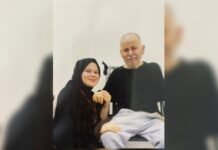Two opposition politicians have condemned a recent Bartın-based operation conducted in four provinces in which 37 people were detained on terrorism charges of helping the families of people jailed over alleged links to the Gülen movement, Turkish Minute reported.
As part of an investigation launched by the Bartın Chief Public Prosecutor’s Office, police earlier this week raided a warehouse in in the Gölbucak neighborhood that contained sugar, oil, legumes and cleaning materials that were alleged to be used to meet the needs of families of people who were expelled from public service via decree-laws, who were in prison due to alleged links to the Gülen movement or who were just released.
Police detained 37 people, confiscating their cash, jewelry, mobile phones and computers in a Bartın-based operation that was also conducted in Karabük, İstanbul and Isparta provinces.
Ömer Faruk Gergerlioğlu, a lawmaker from the pro-Kurdish Peoples’ Democratic Party (HDP) and a prominent defender of human rights, on Friday said in a video he released on Twitter that the warehouse raided by the police didn’t belong to Gülenists but was a part of a grocery store and that supporters of the ruling Justice and Development Party (AKP) were also among those detained in the operation he described as “ridiculous.”
“Now you can be declared a terrorist while shopping at a grocery store,” the MP said, claiming that the operation was conducted by the Bartın Police Department just to win the favor of the new Bartın governor who took office two weeks ago.
Bartın'daki dev(!) operasyonun iç yüzünü açıklıyorum.
Eyy TC vatandaşları artık bir bakkaldan alışveriş yaparken de terörist olabilirsiniz:)
Dronelarla çekilen operasyonun içi boş, yeni gelen @tcbartinvalilik e yaranma çabası.
Bırakın şu çocukca işleri! pic.twitter.com/po5xt7uImH
— Ömer Faruk Gergerlioğlu (@gergerliogluof) June 10, 2022
Mustafa Yeneroğlu, a former AKP politician and current member of the Democracy and Progress Party (DEVA), also criticized the operation, referring to a report by the pro-government Yeni Şafak daily, which ran the headline “FETÖ’s food storage” when covering the police raid.
FETÖ is a derogatory term used by the Turkish government to refer to the faith-based Gülen movement as a terrorist organization.
Yeneroğlu said: “Look at this news mentality. … If you were [real] journalists, you would question this understanding of the law. If you valued Islam, you would know how prisoners were treated after the battle of Badr. [They say] food aid was provided to people. Grudges and hatred destroyed their minds so much so that [they question] how is it that they [Gülenists] aren’t condemned to starvation? Somehow everything is legitimate [when it’s done] against FETÖ [members].”
Bırakın gazeteciliği, insanlıktan o kadar kopmuşlar ki şu haber anlayışına bakın.
Lafa gelince Müslümanlığı kimseye kaptırmaz vicdansızlar.
Gazeteci olsanız bu hukuk anlayışını sorgularsınız.
Müslümanlığa değer verseniz Bedir savaşı sonrası tutsaklara muameleyi bilirsiniz. https://t.co/Z7Yn2r7c0L pic.twitter.com/1q1IuUwJCR
— Mustafa Yeneroğlu (@myeneroglu) June 10, 2022
Turkish President Recep Tayyip Erdoğan has been targeting followers of the Gülen movement, a faith-based group inspired by Turkish cleric Fethullah Gülen, since the corruption investigations of December 17-25, 2013, which implicated then-prime minister Erdoğan, his family members and his inner circle.
Dismissing the investigations as a Gülenist coup and conspiracy against his government, Erdoğan designated the movement as a terrorist organization and began to target its members. He intensified the crackdown on the movement following a coup attempt on July 15, 2016 that he accused Gülen of masterminding. Gülen and the movement strongly deny involvement in the abortive putsch or any terrorist activity.
Following the coup attempt, the Turkish government declared a state of emergency, which remained in force for two years, and carried out a massive purge of state institutions, summarily dismissing more than 130,000 public servants including academics, teachers, diplomats and police officers with emergency decree-laws subject to neither judicial nor parliamentary scrutiny for alleged membership in or relationships with “terrorist organizations.”
A total of 319,587 people have been detained and 99,962 arrested in operations against supporters of the Gülen movement since the coup attempt, Turkey’s Interior Minister Süleyman Soylu said in November.
Such daily activities as having an account at or depositing money in a Gülen movement-affiliated bank, working at any institution linked to the movement or subscribing to certain newspapers and magazines were accepted as benchmarks for identifying and arresting alleged members of the movement.
In addition to the thousands who were jailed, scores of other Gülen movement followers had to flee Turkey to avoid the government crackdown.















